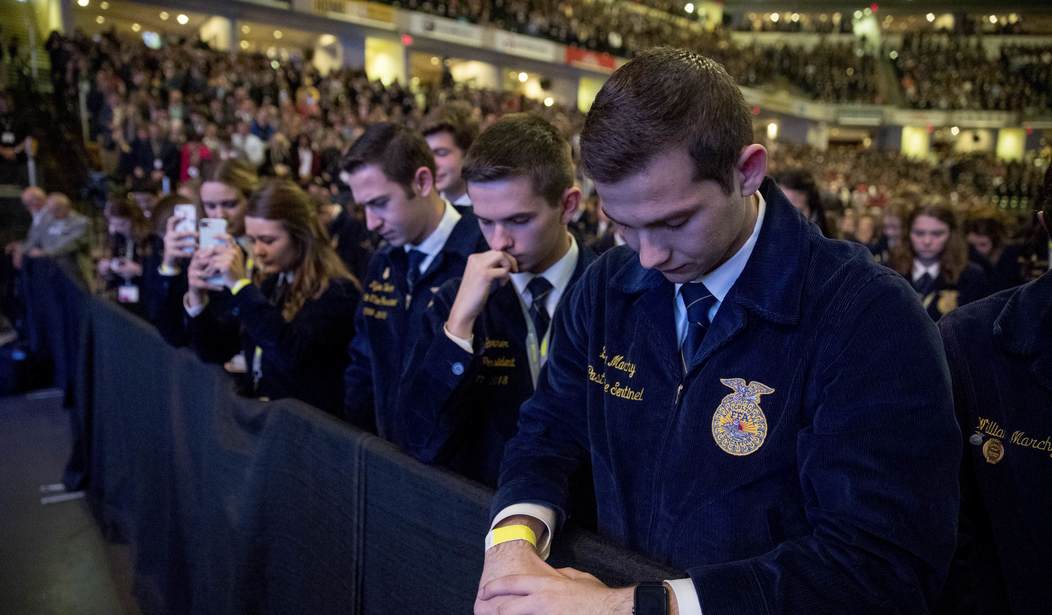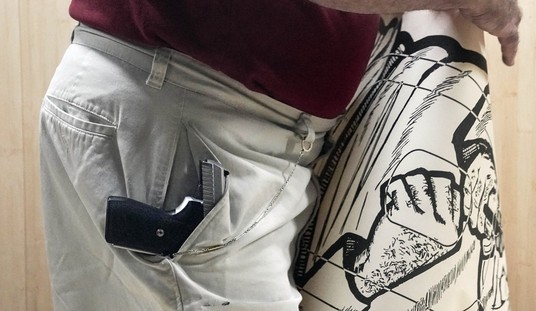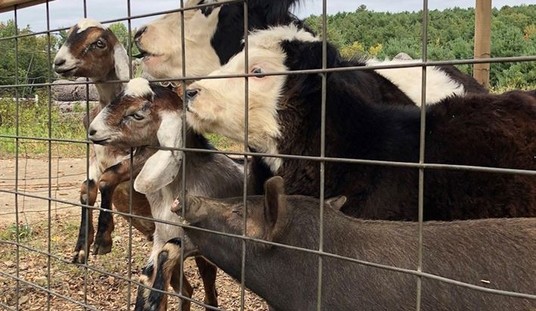AP Photo/Andrew Harnik
These days, whenever there’s a mass shooting, folks immediately offer up their sympathies. They take to social media, the broadest reaching platform they have access to, and say something to the effect of how their “thoughts and prayers are with the victims and their families.”
It’s the equivalent of telling someone you’re sorry to hear their loved one died. It shows that you’re sympathetic to what everyone is going through.
Lately, anti-gunners have started rebuffing these “thoughts and prayers,” mocking them outright. They think “thoughts and prayers” aren’t enough anymore.
On a July afternoon in 2012, Denton Dickerson logged onto Twitter to share his grief after getting notice that a dozen moviegoers had been murdered at a midnight showing of The Dark Knight Rises – a movie he was planning to see later that day.
“My thoughts and prayers go out to those affected by the Aurora Colorado shooting,” Dickerson, now 25, wrote. “There are some sick people in this world.”
Four years and dozens of mass shootings later, including one in his home state of South Carolina that left nine people dead during a Charleston prayer service, Dickerson’s tone on Twitter had shifted.
“Thoughts and Prayers are great but they are not enough,” he wrote in June 2016, hours after a shooting at an Orlando, Florida, nightclub killed 49 people.
Dickerson’s evolution reflects a dramatic change in how Americans use and react to faith-related language in response to mass shootings during a time when the nation has become staunchly polarised on gun policy.
The Washington Post analysed more than 600,000 tweets containing the phrase “thoughts and prayers” between 2012 and 2019 and found that the expression has become a political flash point on social media. Its usage often correlates with political views, faith affiliation and positions on gun policy, according to interviews with experts on religion and politics.
But what’s not discussed is that the anti-gunners have their own version of “thoughts and prayers.”
When people offer up that phrase, it’s typically from the heart, a statement that they’ll be praying for whatever those affected need and will be remembering those impacted by such a horrific event. It means something, even if it doesn’t mean what anti-gunners want it to represent.
You see, for anti-gunners, the only valid way to express sympathy is to immediately press for gun control, even before we know anything about what happened. It’s not uncommon to hear calls for banning “assault weapons” for hours and hours before we learn that the killer used a handgun. It’s not unusual to hear calls for universal background checks for days before finding out that the killer passed a background check at a gun store.
This is their version of “thoughts and prayers.”
However, the claim by anti-gunners that thoughts and prayers aren’t enough is also false. If it were, they’d be open to at least discussing non-gun control actions that could be taken regarding mass shootings. While I don’t think they’d stop advocating for gun control, they’d at least acknowledge that hardening schools or other steps might have an impact and be willing to talk about them.
For them, gun control is the talisman they hold up to “prove” they’re sympathetic to the victims. It’s their version of “thoughts and prayers” and is probably far less effective.
But this is also the world we live in, where calling for infringing on the rights of ordinary Americans is considered the best way to show you care.








Join the conversation as a VIP Member